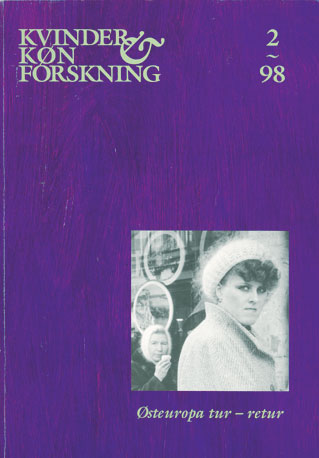Mor Rusland - tur retur: mellem husmødre og kannibaler
DOI:
https://doi.org/10.7146/kkf.v0i2.28435Resumé
The belief in women's "natural" predisposition to motherhood and domesticity was drastically strenghtened during the period of perestrojka, which has been characterized by Russian democratic feminists as "basically a male project". After the disintegration of the Soviet Union and the proclamation of a new Russia, the ongoing search for a national identity continued to nourish what was imagined to be a stable identity, i.e. a female body with a gender-specific mission. So magically promising did this bonding appear that, in 1995, it even influenced the naming of the political party of Prime Minister Chernomyrdin: "Our Home is Russia" ("Nash dom - Rossija"), which clearly links the vision of national identity to the femininity of mothering, nuturing and caring. Behind this image hovers the representation of the Soviet Union as a fallen woman. The article shows how some women internalize the paradigm of the new "mother nation" by constructing prostitutes, homeless women, lesbians, or even unfaithful wives as Soviet "others"; sometimes this deviant is so explicitly ostracized that she is situated beyond the borders, i.e. in the West (or simply in "Europe", i.e. non-Russia). However, this discourse of pathetic and nostalgic womanhood does not stand alone; it is countered by subversive self-representations of domesticity and maternity such as cannibalistic chaos and death (e.g. L. Petrushevskaya's The time - night.) I suggest that both strategies, each in their own way, mirror the collapsing cultural identities which make up the present period of "transition".Downloads
Publiceret
1998-04-29
Citation/Eksport
Bryld, M. (1998). Mor Rusland - tur retur: mellem husmødre og kannibaler. Kvinder, Køn & Forskning, (2). https://doi.org/10.7146/kkf.v0i2.28435
Nummer
Sektion
Artikler
Licens
Udgivelser i Kvinder, Køn og Forskning er beskyttet under Creative Commons License: CC Attribution-NonCommercial 4.0

